Construction projects are inherently complex, requiring the coordination of numerous teams, stakeholders, and tasks. Without effective communication, these projects can quickly fall into chaos, leading to delays, cost overruns, and errors. Centralized communication is a critical tool for ensuring that everyone stays on the same page, from the initial planning stages to the final handover. This article explores the importance of centralized communication in managing construction projects and how it can dramatically improve outcomes. For best results work with residential construction project managers. Get started with a consultation.
Streamlining Information Flow
Eliminating Miscommunication
In construction, miscommunication often leads to costly mistakes and delays. When teams rely on multiple channels or platforms to exchange information, critical details can easily be overlooked or misunderstood. By centralizing communication, you create a single source of truth. As a result, all project-related information is accessible in one place, reducing the risk of errors and ensuring that everyone receives the same updates.
For instance, project managers, contractors, architects, and other stakeholders can access the latest updates, plans, and decisions in real time. This streamlined flow of information prevents misunderstandings and keeps all parties aligned toward the same goals.
Enhancing Decision-Making
Timely and accurate information is essential for making informed decisions in construction projects. With centralized communication, decision-makers have immediate access to the data they need. Whether it’s budget updates, scheduling changes, or design modifications, centralized systems allow for quick retrieval of relevant information. Consequently, project managers can make decisions faster and more confidently, helping to keep the project on track.
Improving Collaboration Among Teams
Facilitating Team Coordination
Construction projects typically involve various teams working on different tasks simultaneously. Without centralized communication, coordinating these teams can be challenging, often leading to overlaps, delays, or conflicts. Centralized communication tools provide a platform where all teams can collaborate effectively. They can share updates, report progress, and raise concerns in real time, ensuring that everyone stays aligned.
Furthermore, centralized communication fosters a collaborative environment by breaking down silos between different teams. When everyone has access to the same information and communication channels, open dialogue and teamwork become the norm. This level of coordination is essential for meeting project deadlines and maintaining high-quality standards. For best results work with residential construction project managers. Get started with a consultation.
Streamlining Document Management
Construction projects generate a significant amount of documentation, including blueprints, permits, contracts, and progress reports. Managing these documents efficiently is crucial for project success. Centralized communication systems often include document management features that allow easy sharing, storage, and retrieval of all project-related documents. This ensures that all team members have access to the latest versions, reducing the risk of working with outdated information.
Additionally, centralizing document management ensures that all necessary approvals and signatures are obtained promptly. This reduces delays and keeps the project moving forward without unnecessary interruptions.
Enhancing Accountability and Transparency
Tracking Progress and Milestones
Centralized communication tools often come with features that allow project managers to track progress and monitor milestones. By having a clear overview of what has been completed and what still needs attention, project managers can identify potential bottlenecks and address them proactively. This visibility enhances accountability among team members because everyone understands their responsibilities and deadlines.
Moreover, centralized communication provides a record of all interactions, decisions, and changes made throughout the project. This transparency ensures a clear trail of accountability, making it easier to resolve disputes or misunderstandings that may arise.
Reporting and Feedback
Regular reporting is essential for keeping all stakeholders informed about the project’s status. Centralized communication makes it easier to compile and distribute reports to relevant parties. Project managers can quickly gather data from different teams, generate reports, and share them through the centralized platform. As a result, everyone, from clients to contractors, stays updated on the project’s progress.
In addition, centralized communication allows for efficient feedback collection. Stakeholders can provide input directly through the platform, ensuring that their concerns or suggestions receive prompt attention. This continuous feedback loop helps improve project quality and ensures that the final outcome meets expectations. For best results work with residential construction project managers. Get started with a consultation.
Reducing Delays and Costs
Minimizing Delays
Delays are a common challenge in construction projects, often caused by miscommunication or lack of coordination. Centralized communication helps minimize these delays by ensuring that everyone is informed and aligned. When issues arise, they can be communicated and resolved quickly, preventing them from causing significant disruptions to the project timeline.
Moreover, centralized communication allows for real-time updates and adjustments. If there are changes to the schedule or scope, they can be communicated immediately to all relevant parties, ensuring that everyone adjusts their work accordingly. This agility is crucial for keeping the project on track.
Controlling Costs
Effective communication plays a significant role in controlling construction costs. Miscommunication or delays can lead to rework, material wastage, or extended timelines, all of which increase costs. Centralized communication reduces these risks by ensuring that everyone has the correct information and that decisions are made based on accurate data.
Furthermore, by providing a clear overview of the project’s progress and expenditures, centralized communication helps project managers identify potential cost overruns early. This enables them to take corrective action before the budget is exceeded, ultimately leading to more efficient use of resources. For best results work with residential construction project managers. Get started with a consultation.
Enhancing Client Satisfaction
Providing Real-Time Updates
Clients expect regular updates on the progress of their construction projects. Centralized communication allows project managers to provide these updates easily and in real-time. Clients can access the centralized platform to see the latest developments, view progress reports, and understand any challenges the project may be facing. This transparency builds trust and keeps clients engaged throughout the project.
Ensuring Clear Communication
Clear communication is key to managing client expectations and ensuring their satisfaction. Centralized communication ensures that all client interactions are documented and easily accessible. This reduces the likelihood of misunderstandings and ensures that any client requests or concerns receive prompt attention. By maintaining clear and consistent communication, project managers can build strong relationships with their clients, leading to successful project outcomes.
Centralized communication is essential for managing construction projects effectively. It streamlines information flow, improves collaboration, enhances accountability, and reduces delays and costs. By centralizing communication, project managers ensure that all stakeholders are informed, aligned, and working toward the same goals. In the complex and dynamic environment of construction, the benefits of centralized communication are undeniable, making it a critical component of successful project management.


